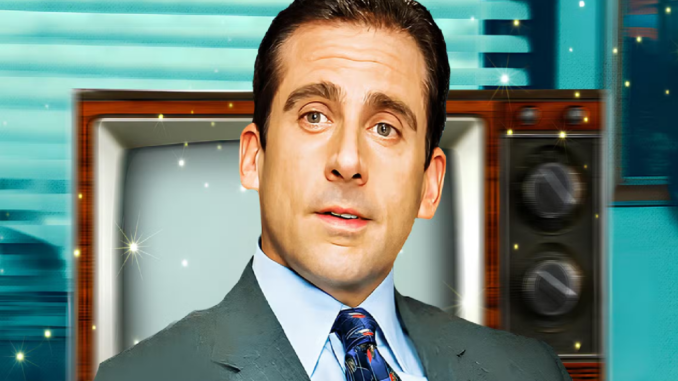
In its first season, the U.S. version of The Office was pretty much a like-for-like adaptation of its predecessor. It had the same low-key tone, the same characterization, the same cynicism, the same excruciating cringe humor, and a lot of the same storylines and dialogue. But none of that worked as well for an American audience as it did for a British audience. As the remake went into its second season, the writers made some key changes that saved the series from failure and allowed it to become a hit.
The Office Season 2, Episode 1, “The Dundies” Changed The Course Of The Show
The Writers Started To Make Michael More Likable
The Office season 2, episode 1, “The Dundies,” sees Michael hosting an annual awards ceremony called “The Dundies” at the local Chili’s restaurant, honoring his employees for their greatest achievements, ranging from Pam’s blindingly white tennis shoes to Kevin’s abhorrent work in the men’s room. It was the perfect premise for The Office; it’s both the exact kind of thing that happens in a mundane workplace and it ties into Michael’s penchant for performance. Pam sneaks drinks off other people’s tables and gets drunk enough to kiss Jim, while Michael tries to keep the show on track.
“The Dundies” was a major turning point in the writers’ approach to The Office. Michael suffers plenty of embarrassment throughout the episode, as he had in all the episodes of season 1, but crucially, in “The Dundies,” his employees feel bad for him and rally behind him. In season 1, it seemed like the employees didn’t care about Michael and they were just waiting until five o’clock when they could go home. But “The Dundies” showed that Michael’s employees do care about him, which started to create the feeling of a found family.
“The Dundies” Is Where Michael Scott Becomes A More Sympathetic Character
Michael Shows His Vulnerable Side
After the mixed response to season 1, The Office’s writing team figured out why it wasn’t working: Michael wasn’t sympathetic enough. British audiences enjoy laughing at a character like David Brent or Michael Scott, but American audiences want to root for the underdog. “The Dundies” was the episode where the writers started making a concerted effort to make Michael a more sympathetic character. Throughout most of the Dundies ceremony, the employees are just bored, suffering from second-hand embarrassment, and waiting for the whole thing to end.
But in one key scene, their attitude shifts. While Michael is singing a parody version of Elton John’s “Tiny Dancer,” some nearby Chili’s patrons start mocking him and throwing things at him. As Michael gets ready to call it a night early, his staff — led by Jim and Pam — cheer him on to keep the show going. Seeing Michael get publicly humiliated made both the audience and the other characters feel bad for him, which started to round him out into a more three-dimensional character. It showed that there was a lot more depth to Michael than it initially seemed.
After “The Dundies,” The Office US Was No Longer Just A Remake Of The British Show
It Became A Much Warmer, Sweeter Show
After “The Dundies,” the U.S. version of The Office evolved into its own show. In its first season, it was a pretty straightforward remake of the original British series, but in season 2, it morphed into its own thing. Michael became a more innocent character than David, more in line with what Steve Carell could bring to the role. A few episodes later, in season 2, episode 7, “The Client,” The Office showed Michael to be a good salesman with impressive people skills, explaining how such a bumbling buffoon became regional manager in the first place.
The Office’s best episodes show how different it became from its predecessor. David wasn’t inept enough to grill his foot on a George Foreman grill like Michael did in season 2, episode 12, “The Injury.” David wasn’t selfless enough (or naive enough) to promise college tuition to an entire class of third-graders like Michael did in season 6, episode 12, “Scott’s Tots.” The American remake of The Office became a totally different show than the UK original — and that all started with “The Dundies.”
